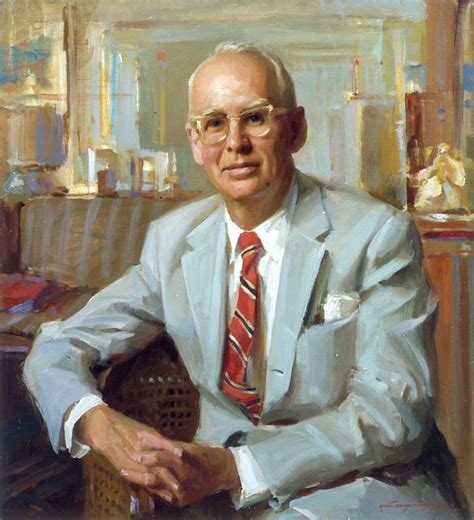A Quote by Peter Adamson
Assuming there is an intellect, we're clearly not this universal intellect or we would know it. So that's one function of soul.
Related Quotes
All goes to show that the soul in man is not an organ, but animates and exercises all the organs; is not a function, like the power of memory, of calculation, of comparison, but uses these as hands and feet; is not a faculty, but a light, is not the intellect or the will, but the master of the intellect and the will; is the background of our being, in which they lie,--an immensity not possessed and that cannot be possessed.
In Savasana or in meditation, the light of the eyes is drawn towards the lotus of the heart, so that the seat of the intelligence of the head is brought into contact with the seat of the intelligence of the heart, which is called the mind. Thus one passes from the individualistic state of consciousness to the universal state of consciousness. It is the merging of the intellect of the brain with the intellect of the soul.
Who you really are, is an immaterial soul and the body is an external thing that's sort of an encrustation your soul. So this has important implications for Plotinus' ethics, because his ethics are basically all about encouraging us to turn away from the body and turn towards these higher principles, so universal soul, universal intellect and ultimately the One.
We don't always possess faith in the sense of having a clear embodiment of something to hang on to. The relationship between the intellect and faith is a very curious one. Sometimes the intellect can point us to faith, sometimes the intellect can stand in the way of faith. Sometimes, as St John of the Cross points out, we have to darken or blind the intellect in order to have faith.
People often talk about Plotinus' system. The reason they do this is that Plotinus postulated a kind of series or chain of principles, so at the top there's what he called the One. Below the One is what he called Intellect. Below Intellect is Soul, and the effect of the soul is the physical world that we actually live in.
The soul must be distinct from intellect because even at its best, what the soul does when it's thinking, is it thinks linguistically, it thinks in a temporarily extended way, so it for example, might go through the steps of an argument chain, as if you were going through a syllogism and seeing that something followed from the premises, whereas intellect simply grasps the forms.






























